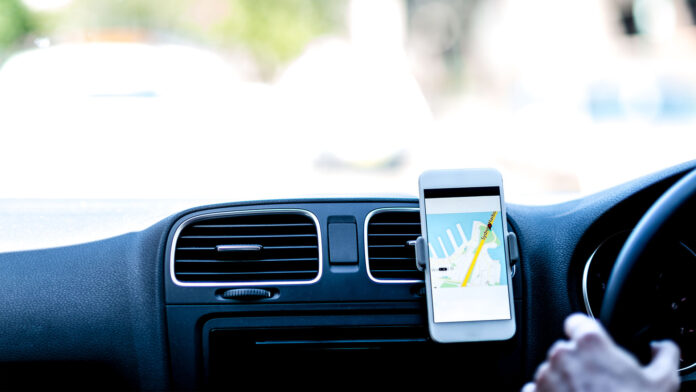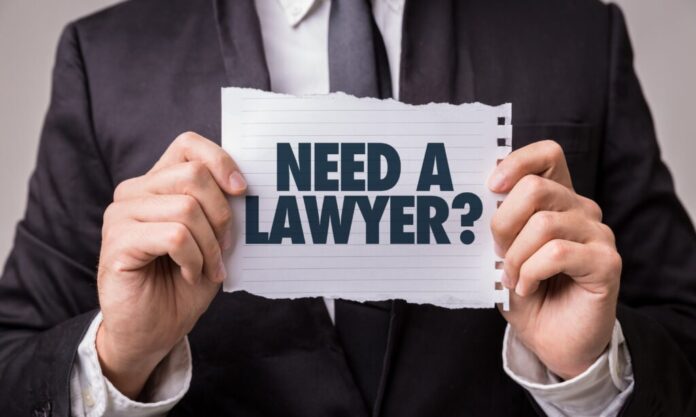In our fast-paced digital era, ride-sharing apps like Uber have transformed the way we commute. However, as with any vehicle on the road, accidents can and do happen. If you’ve been involved in an Uber accident, understanding the legal landscape is crucial. This article delves into the key considerations after such an accident and helps you decide whether hiring a lawyer is the right move.
Uber’s Insurance Policy
Before diving into legal complexities, it’s essential to have a basic understanding of Uber’s insurance policy.
- Active App, No Passenger: If the Uber driver has the app active but hasn’t accepted a ride, the company provides a backup liability coverage, but it is limited. This kicks in only if the driver’s personal auto insurance refuses to pay.
- Ride Accepted to Drop-off: From the moment a ride is accepted to passenger drop-off, Uber provides a $1 million liability insurance policy. This covers injuries or damages sustained by passengers, pedestrians, other drivers, and property.
Remember, while these policies sound reassuring, getting the compensation can be a complicated affair. There may be disputes about fault, policy limits, and other nuances that impact your claim. Make sure to check out calillaw.com if you need legal advice.
Determining Liability

Accidents can be messy, and determining who’s at fault can be even messier.
- Driver’s Fault: If the Uber driver is found to be at fault, the company’s insurance should cover the damages, given the app was active during the incident.
- Another Party’s Fault: If another party caused the accident, their insurance should cover the damages. However, if they’re uninsured or underinsured, Uber’s uninsured/underinsured motorist coverage might cover the difference.
- Shared Fault: Some states follow comparative negligence rules, where the fault can be divided among parties. Here, your compensation may be reduced based on your percentage of fault.
Rights of Different Involved Parties
- Passengers: If you’re an Uber passenger, you’re usually in a better position. Regardless of who’s at fault, you can usually file a claim against the at-fault driver’s insurance, whether it’s the Uber driver or another vehicle’s driver.
- Pedestrians: If an Uber vehicle hits a pedestrian, the pedestrian can file a claim against Uber’s insurance if the app was active during the collision.
- Other Motorists: If you’re another driver hit by an Uber, your claim process will largely depend on who was at fault and the status of the Uber app during the mishap.
Personal Injury Protection (PIP) & Medical Payments
Many states mandate that auto insurance policies offer PIP or MedPay, which cover medical bills regardless of fault. If you have such coverage, you can use it to pay your medical bills after an Uber accident. However, this might affect the amount you can claim from other insurances.
Navigating Multiple Insurances

Claims involving ride-sharing companies can involve multiple insurance companies: the driver’s personal insurer, Uber’s insurer, and potentially another at-fault party’s insurer. Coordinating between them can be a hassle, especially when they start pointing fingers at each other.
Statute of Limitations
Every state has a statute of limitations for personal injury claims. This is a fixed period within which you must file a lawsuit after an injury. If you miss this window, you might lose your right to sue. Being aware of this timeline is essential to safeguard your rights.
The Value of Your Claim
Assessing the worth of your claim isn’t straightforward. Many factors come into play:
- Medical bills: Current and future medical expenses related to the injury.
- Lost wages: Compensation for the time you were unable to work due to injuries.
- Pain and suffering: Compensation for physical pain and emotional distress.
- Property damage: Cost to repair or replace damaged property.
Each claim’s value is unique, making it vital to assess every aspect meticulously.
The Role of a Lawyer

Now, coming to the pivotal question: Should you hire a lawyer after an Uber accident?
- Expertise in Negotiation: Insurance companies are notorious for offering lowball settlements. A seasoned attorney knows the tactics insurers employ and can negotiate assertively on your behalf.
- Comprehensive Claim Evaluation: An attorney can thoroughly evaluate all damages, ensuring nothing gets overlooked. They’ll consider current and future expenses, both tangible and intangible.
- Reduced Stress: Managing recovery and legal claims simultaneously can be overwhelming. A lawyer handles the legalities, allowing you to focus on healing.
- Contingency Fee Basis: Most personal injury lawyers work on a contingency fee basis, meaning you pay only if you win the case.
- Higher Settlements: Studies indicate that individuals who hire attorneys often receive higher settlements than those who don’t, even after accounting for legal fees.
When Hiring a Lawyer Might Not Be Necessary
In some cases, the damages and injuries might be minor, and the liability clear-cut. Here, you might feel comfortable navigating the claim process on your own. But remember, once you settle, you can’t go back and ask for more, even if you discover additional costs later.
Proactive Steps Post-Accident
Before diving deeper into legal considerations, it’s worth noting the actions you should take immediately following an Uber accident:
- Safety First: Check for injuries and call 911 if immediate medical attention is needed. Move to a safe location if possible.
- Gather Information: Collect details from all parties involved, including the Uber driver, other drivers, and witnesses. Take note of names, contact details, insurance details, vehicle information, and license plate numbers.
- Document the Scene: If safe to do so, take pictures of the accident scene, vehicle damages, injuries, and any other relevant details. These can be pivotal when making claims.
- Report to Uber: Use the app to report the accident. This will trigger an internal investigation by Uber.
- Seek Medical Attention: Even if injuries seem minor, it’s crucial to consult a doctor. Some injuries may not manifest immediately.
Potential Complications
While the legal framework might seem straightforward, complications often arise:
- Denial of Liability: Insurance companies might dispute fault, arguing that their policyholder wasn’t responsible, or downplaying the extent of responsibility.
- Conflicting Statements: Different parties might have varied accounts of how the accident happened.
- Policy Exclusions: Sometimes, insurance policies might have specific exclusions, leading to denial of claims.
Early Legal Counsel

Engaging a lawyer early on can provide several advantages:
- Evidence Preservation: Attorneys can help in preserving evidence, which might be crucial later.
- Accurate Statement: Your lawyer can guide you on providing statements to insurance adjusters, ensuring you don’t inadvertently harm your claim.
- Quick Settlements: With legal representation, insurance companies might be more inclined to offer a fair settlement early, avoiding prolonged legal battles.
The Courtroom Scenario
Should negotiations fail, your case might head to court. Here, legal representation becomes invaluable:
- Filing Suit: There are specific protocols and timelines for filing a lawsuit. A lawyer ensures these are adhered to.
- Discovery Process: Before trial, both sides gather evidence. This might involve interrogating witnesses, collecting documents, and expert testimonies.
- Trial: In court, your lawyer will present your case, aiming to convince the jury of the other party’s liability and the compensation you deserve.
Final Thoughts
Being involved in an Uber accident is undoubtedly stressful. While legal considerations might seem daunting, they are crucial in ensuring you receive the compensation you’re entitled to.
Whether you opt to navigate this journey alone or with legal representation, being informed is key. Understand your rights, the potential pitfalls, and the benefits of professional guidance. In the end, your primary goal should be a fair resolution that covers your damages and supports your recovery.





![Calgary’s Hottest Neighborhoods for Luxury Homebuyers [2024]](https://thewashingtonote.com/wp-content/uploads/2024/04/Calgary-324x160.png)



